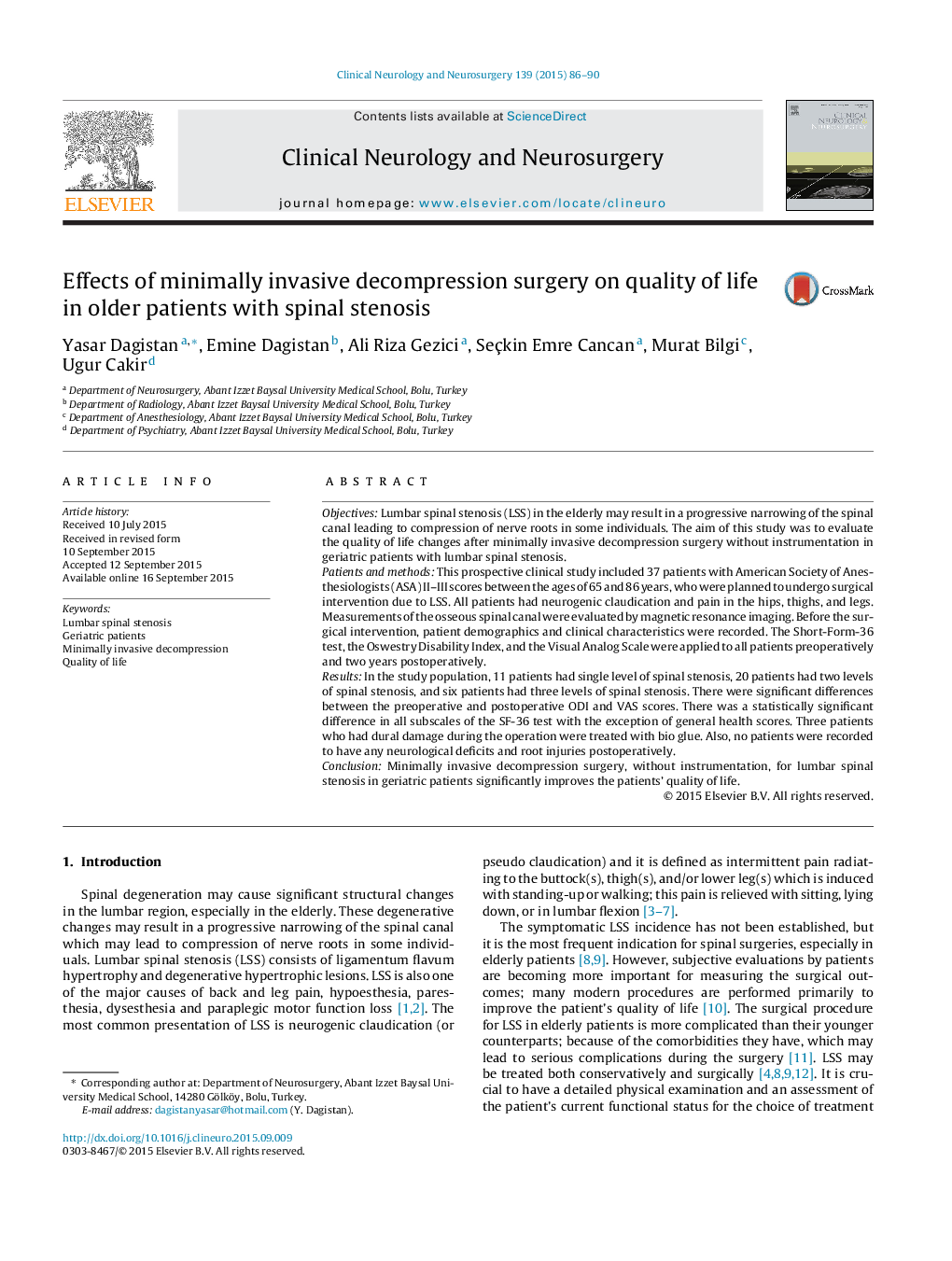| Article ID | Journal | Published Year | Pages | File Type |
|---|---|---|---|---|
| 3039771 | Clinical Neurology and Neurosurgery | 2015 | 5 Pages |
•We evaluated quality of life after surgery of the elderly with stenosis.•Minimally invasive decompression for lumbar spinal stenosis is effective in elderly patients.•Surgery without instrumentation in geriatric patients with lumbar spinal stenosis is effective.
ObjectivesLumbar spinal stenosis (LSS) in the elderly may result in a progressive narrowing of the spinal canal leading to compression of nerve roots in some individuals. The aim of this study was to evaluate the quality of life changes after minimally invasive decompression surgery without instrumentation in geriatric patients with lumbar spinal stenosis.Patients and methodsThis prospective clinical study included 37 patients with American Society of Anesthesiologists (ASA) II–III scores between the ages of 65 and 86 years, who were planned to undergo surgical intervention due to LSS. All patients had neurogenic claudication and pain in the hips, thighs, and legs. Measurements of the osseous spinal canal were evaluated by magnetic resonance imaging. Before the surgical intervention, patient demographics and clinical characteristics were recorded. The Short-Form-36 test, the Oswestry Disability Index, and the Visual Analog Scale were applied to all patients preoperatively and two years postoperatively.ResultsIn the study population, 11 patients had single level of spinal stenosis, 20 patients had two levels of spinal stenosis, and six patients had three levels of spinal stenosis. There were significant differences between the preoperative and postoperative ODI and VAS scores. There was a statistically significant difference in all subscales of the SF-36 test with the exception of general health scores. Three patients who had dural damage during the operation were treated with bio glue. Also, no patients were recorded to have any neurological deficits and root injuries postoperatively.ConclusionMinimally invasive decompression surgery, without instrumentation, for lumbar spinal stenosis in geriatric patients significantly improves the patients’ quality of life.
